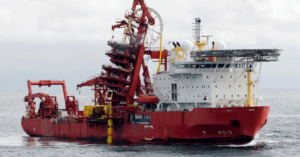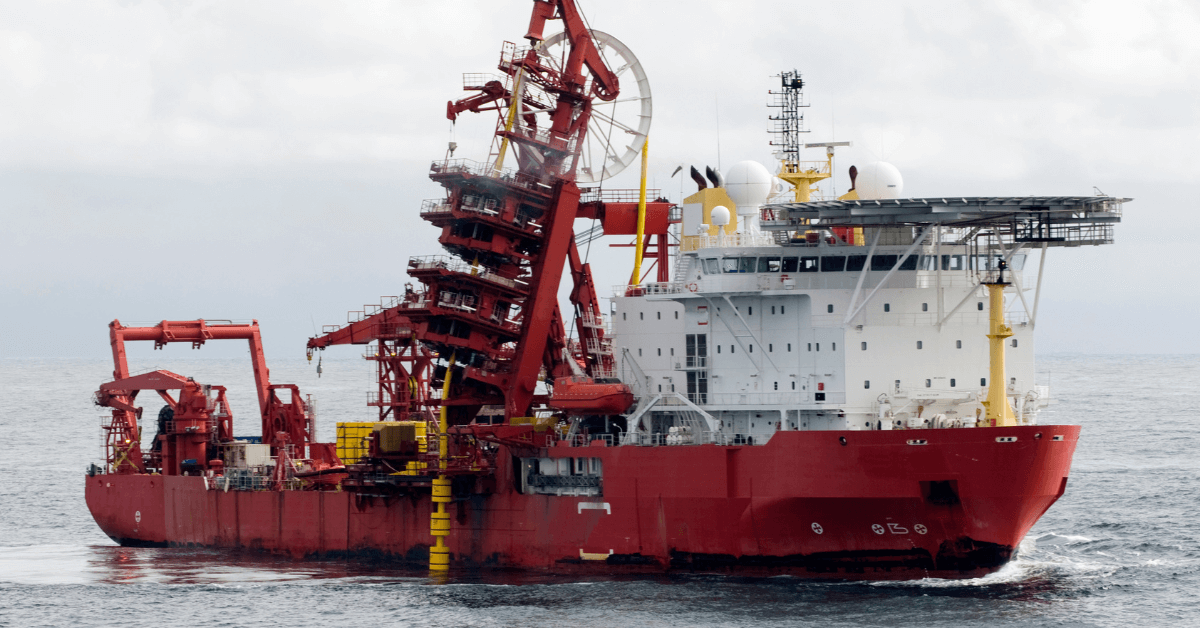
Iran Accuses EU & UK Of Violating International Maritime Laws With New Sanctions
November 20, 2024
U.S. Coast Guard Crew Offloads $335.8 Million Worth Of Cocaine In San Diego
November 20, 2024

The European government has accused Russia of increasing hybrid attacks on Western allies after two undersea fibre-optic cables were found damaged in the Baltic Sea last week.
This disrupted the connection between Finland and Germany, Sweden and Lithuania. It is being investigated as possible sabotage.
While European officials have not directly blamed Russia, Germany, Poland, and other nations have said that the damage to the cables was intentionally done.
Lithuania has increased surveillance of its waters, and Sweden has launched a preliminary criminal investigation.
German Defense Minister Boris Pistorius says that no one believes these cables were cut accidentally, adding that sabotage is the most likely reason behind it. However, investigations are underway to find out the exact cause.
Polish Foreign Minister Radoslaw Sikorski has warned that if Russia continues to commit such acts, Poland may close the remaining Russian consulates in the country.
This incident is similar to the destruction of the Nord Stream gas pipelines in 2022, another case of suspected sabotage in the Baltic Sea. Though no one has claimed responsibility for that attack, Russia has faced similar accusations, which it has strongly denied.
Authorities in Finland, Lithuania and Sweden are working together to find the cause of the cable cuts. Sweden’s armed forces, coastguard and navy are actively investigating the breaches using advanced undersea technology.
Swedish Civil Defence Minister Carl-Oskar Bohlin said that ship movements were detected near the affected areas during the outages, raising suspicions.
Finland’s National Bureau of Investigation confirmed its involvement in the investigation but said that Sweden will lead it.
According to Arelion and Cinia, the companies behind the damaged cables, both the affected cables were completely damaged. Repairs are likely to take 5 to 15 days.
NATO is also monitoring the situation, along with its Maritime Centre for the Security of Critical Undersea Infrastructure, which is helping the allied nations.
A NATO official discussed the importance of safeguarding critical infrastructure after such incidents.
In a joint statement, France, Germany, Italy, Poland, and the United Kingdom’s foreign ministers accused Russia of unprecedented hybrid activities against NATO and EU countries.
These activities, they said, posed major security risks and required a coordinated European response.
Josep Borrell, Vice President of the European Commission, cautioned that it was too early to blame anyone. He said it would be irresponsible to point fingers without clear evidence during a press conference in Brussels.
Russia has denied involvement in the cable incidents, calling the accusations baseless and part of an ongoing information war waged by the West.
Kremlin officials have also pointed out the lack of concrete findings in past investigations, including those related to the Nord Stream pipeline explosions.
European officials have reported increased Russian activity in the Baltic Sea, with some suspecting it could be linked to espionage or infrastructure sabotage.
Considering the severity of the situation, European leaders are demanding enhanced security measures to protect undersea cables and other critical infrastructure.
References: StraitsTimes, Sky News
Source: Maritime Shipping News


